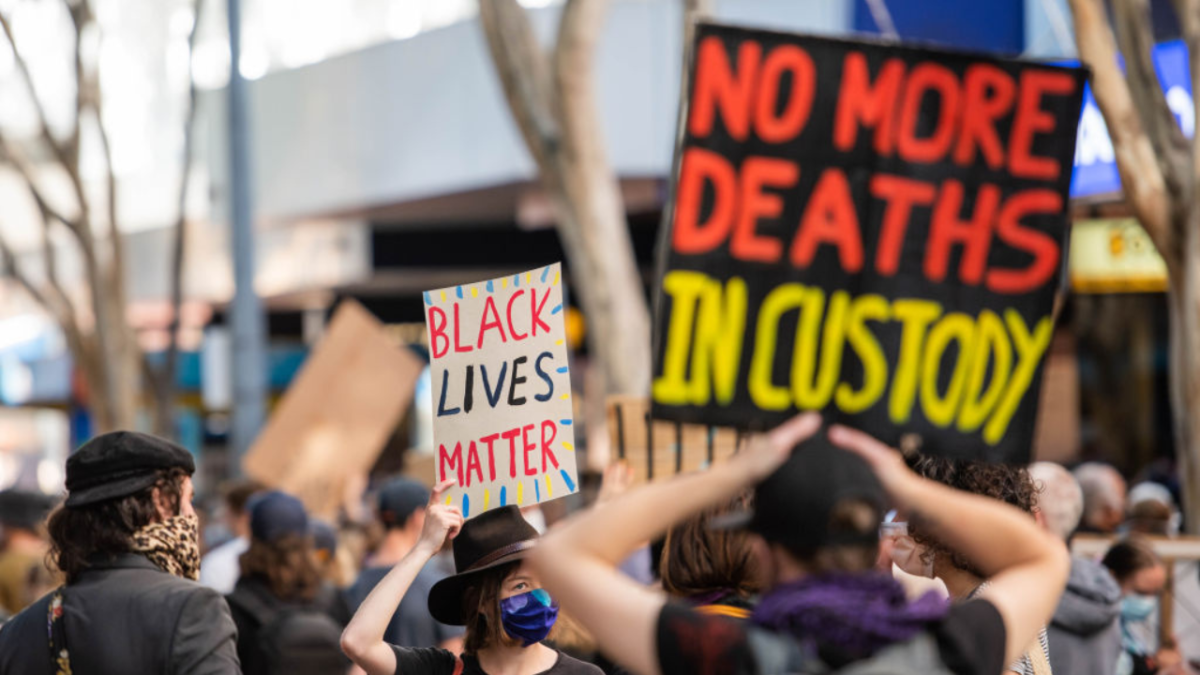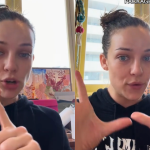
A Northern Territory Supreme Court judge says antiracism — the act of actively identifying and fighting against racism — is starting to resemble a “religion or a cult”. The comparison is, for lack of a better word, a Choice.
Justice Judith Kelly made the comment at a networking event for women lawyers on August 26, when she delivered a speech about domestic violence against First Nations women in the Northern Territory.
“I want to talk (briefly) about a difficulty which has grown up in even talking about [domestic violence],” she said.
“That is an ideology of supposed ‘antiracism’ which is beginning to assume the dimensions of a religion or a cult under the influence of which people and institutions are casually and inaccurately labelled as ‘racist’ without any evidentiary basis for the charge.”
To compare fighting against racism to a cult is irresponsible, as the word has inherently negative connotations. Take the Peoples Temple, a cult led by Jim Jones which started as a religious group intended to promote socialism and equality and ended in a mass murder-suicide of predominantly African American people. Or the Manson Family, which was established by Charles Manson, whose followers thought he was the manifestation of Jesus Christ and believed him when he said an apocalyptic race war was imminent.
Although a cult technically refers to a group that shares similar beliefs, popular use of the term is synonymous with brainwashing and mind control. Do we really want to be drawing a parallel to the act of opposing racism here?
Kelly went on to discuss the racism in Australia.
“In the past, Australian Governments had racist policies and a significant portion of the community had unthinking racist attitudes,” she said.
“These things should be acknowledged, and those times have left a legacy of disadvantage BUT the fact that some contemporary problems have been caused or contributed to by racism in the past does NOT mean that they are the result of racism today.
“On the whole, modern Australian society is not racist — and I think the majority of contemporary Australians are not racist.”
With all due respect to Kelly, as a white woman she hasn’t experienced racism. It simply isn’t her place to comment on the prevalence of an issue that doesn’t affect her, nor can she conclude that modern racism has or hasn’t caused “contemporary problems”.
And as a Supreme Court judge, to minimise the effect of racism when applying the law is concerning.
She continued: “Most folk would almost rather be branded a paedophile than a racist.”
All I will say is: yikes.
These words are alarming, and even more so when they’re being publicly spoken by someone whose job it is to apply the law in a state with a large population of First Nations people.
Per the Australian Bureau of Statistics, the 2021 Census showed 61,000 people in the Northern Territory — a state with a population of 233,000 people —identified as Aboriginal and/or Torres Strait Islander. This is compared to data from Victoria, which showed 66,000 people in a state of 6.5 million identified as Aboriginal and/or Torres Strait Islander.
Cases of domestic violence in the Northern Territory have also increased. ABS data showed that in 2021, there were 5733 victims of family and domestic violence in the territory — almost two-thirds of all assaults recorded. The figure has grown by more than 2000 cases in three years.
“Indigenous women are approximately 10 times more likely to be the victim of an assault than non–Indigenous women, and 32 times more likely to end up in hospital than a non–Indigenous woman victim,” Kelly said, quoting figures from a 2011 report.
“What can we as lawyers – and the courts – do about it? Pretty much nothing. In my experience, both prosecutors and defence lawyers do a good job and as a result, in most individual cases, justice according to the law can be said to have been done.”
The onus of finding a solution to reduce instances of domestic violence certainly isn’t just on the legal system, but it’s discouraging for Kelly to acknowledge that lawyers and the courts can “pretty much” do “nothing” to help.
She provided examples of ways people can help to curb domestic violence, such as calling Triple Zero if they hear or witness assault, donating to women’s shelters, crowd funding and even writing to the paper.
Kelly also accepted “deep societal disadvantages” played a role in rates of domestic violence, and “improvements in health, housing, education, bringing jobs to the bush should be amenable (at least partly) to amelioration through political and economic action from mainstream Australian institutions — in conjunction with Aboriginal communities who generally know best what they need”.
There are ways to sensitively discuss issues that impact communities of colour and as white people — like Kelly and myself — it’s crucial to acknowledge our positions and privilege in a system built on white colonialism. But doing so shouldn’t conflate antiracist work with a religion or cult, and neither should white people be the ones assessing and speaking on how prevalent racism is in modern Australian.



